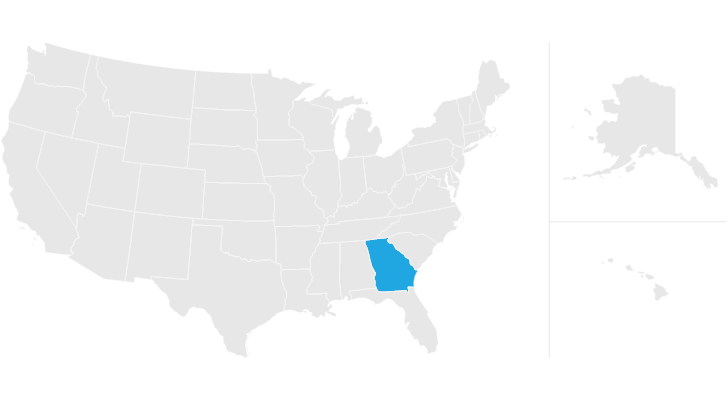Creating a living trust in Georgia is a strategic way to manage and protect your assets while ensuring a smooth transfer to your beneficiaries without the need for probate. A living trust allows you to retain control over your property during your lifetime and specify how it should be distributed after your passing. Georgia has specific legal requirements for trusts, making it essential to follow the correct procedures to ensure its validity. Understanding these steps can help you create a secure estate plan that aligns with your financial goals and provides peace of mind for your loved ones.
A financial advisor can help you create an estate plan for your family’s needs and goals.
What Is a Living Trust?
Living trusts are legal frameworks in which property and assets can be stored. They are established by a document. Each trust has a trustee who manages and distributes the property in the trust. When creating a trust, you can either name yourself as the trustee or pick someone else for the job. The living trust takes effect while you’re still alive and it continues after your death, unless you include a provision to terminate the trust on a specific date. Living trusts can be irrevocable or revocable and here is how they differ.
Irrevocable living trusts
This is a permanent arrangement, and property can only be removed from this type of trust with the permission of everyone named in the trust. The property inside an irrevocable living trust is owned by the trust, and thus taxes are paid via the trust. There are several types of irrevocable trusts, including:
- Irrevocable life insurance trust: This is a trust designated as the beneficiary of your life insurance policy.
- Irrevocable marital trust: Also known as a bypass trust, it transfers assets from one spouse to another at the time of the first spouse’s death.
- Irrevocable charitable trust: An irrevocable charitable trust is a type of trust designed to provide financial support to charitable organizations while offering tax benefits to the grantor and potentially their beneficiaries.
Revocable living trusts
Revocable living trusts are more flexible. The trust creator, also known as the grantor, can remove property at will, and modify the trust without first getting permission from the beneficiaries. The grantor maintains ownership of the property in the trust and pays taxes on it as normal.
The assets in a revocable trust are still yours and you will pay taxes accordingly. That includes any income taxes, inheritance taxes or estate taxes. Your revocable trust will have the same Social Security number as you. The effect is that any income from assets in the trust will go on your own income return.
How to Create a Living Trust in Georgia
Creating a living trust is similar from state to state but the process does depend on local rules. Follow these six basic steps to make a living trust in the Peach State:
- Choose the type of trust you’re going to form: For single people, a single trust is likely the right choice. If you’re married, a joint trust might make more sense. A joint trust can hold jointly owned property like cars and homes, plus anything that either spouse independently owns.
- Take stock of your property and assets: Most things you own, including stocks, bonds, and family heirlooms like jewelry, can go inside the trust. Now is also the time to gather relevant paperwork for your property, such as car titles or home deeds.
- Pick a trustee to distribute the contents of your trust when you die: You can either give this title to someone else right away or name yourself as trustee and pick a successor trustee to take over the job when you die. Most people choose a child or another relative to be their trustee.
- Draw up the trust document: You can do this online with a program or get the help of a lawyer.
- Get the document notarized: Sign the document before a notary public.
- Put your property into the trust: This does take some paperwork, so while you can do it by yourself a lawyer may be useful.
How Much Does It Cost to Create a Living Trust in Georgia?
The amount you’ll spend to set up a living trust in Georgia depends on the method you use to create the trust. If you use an online program to write the trust document yourself, you’ll probably spend less than a few hundred dollars. If you hire an attorney to help you create the trust, you’ll probably spend more than $1,000.
It is obviously cheaper to create your trust yourself, but there are many pitfalls inherent to DIY estate planning. You’ll have to be extremely vigilant and take a lot of time to do all of the necessary research. For this reason, hiring an attorney may be more prudent. The exact cost of this option will depend on the fees each attorney charges, so check early in the process to avoid any surprises. Also make sure any attorney you work with is a trust expert, not merely an estate planner.
Why Get a Living Trust in Georgia?

The most common reason for getting a living trust in Georgia is to make life easier for your family when you die by allowing them to avoid probate court. Probate court is a lengthy process that most estates have to go through, and it can at times be costly, time-consuming and an invasion of privacy. Georgia has not adopted the Uniform Probate Code. This code, used in some states, can make the probate process simpler. Since it’s not a place in Georgia, a living trust can be especially useful in the Peach State.
There are other upsides to getting a living trust, too. If you have minor children to whom you want to leave the property, a living trust makes it possible for a trustee to keep the property until the child reaches legal age. If you become incapacitated, having a living trust can mean you avoid conservatorship because you’ll have already selected a trustee.
Who Should Get a Living Trust in Georgia?
Some people believe that living trusts are only for those with a lot of money, but this isn’t true. In Georgia, the lack of the Uniform Probate Code means that many estates, even smaller ones, can benefit from a living trust. This is especially true because there is no simplified probate process in Georgia unless an estate has no will, the estate has no debts and the beneficiaries have already agreed on how to divvy up property.
Of course, there are reasons not to get a living trust. For one, they can be more costly and time-consuming to set up than a will. Also, living trusts have the potential to be more difficult for your heirs, as they offer a longer window for legal challenges after you’ve died. If you do decide against getting a living trust, remember that you’ll still need an estate plan.
Living Trusts vs. Wills
Even if you create a living trust, you’ll still need a will to address any property that’s not stored in the trust. Plus, a will can do the following items that a living trust cannot:
- Establish guardianship for children who are minors
- Select managers for children’s property
- Name an executor
- Provide instructions on how to pay taxes and debts
Here is a more complete comparison of the abilities of living trusts vs. wills:
Living Trusts vs. Wills
| Purpose | Living Trusts | Wills |
| Names a property beneficiary | Yes | Yes |
| Allows revisions to be made | Depends on type | Yes |
| Avoids probate court | Yes | No |
| Requires a notary | Yes | No |
| Names guardians for children | No | Yes |
| Names an executor | No | Yes |
| Requires witnesses | No | Yes |
Choosing between a trust and a will depends on your financial situation, estate planning goals, and how you want your assets to be managed and distributed. Many people use both a trust and a will. A “pour-over” will can act as a backup to transfer any remaining assets into your trust upon death, ensuring full estate coverage.
Living Trusts and Taxes in Georgia

The trust itself does not file a separate tax return while the grantor is alive. However, after the grantor’s death, the trust becomes irrevocable, and depending on its structure, it may be subject to federal estate taxes if the estate exceeds the federal exemption limit. Georgia does not have a state estate or inheritance tax, which can simplify tax planning for residents. Additionally, irrevocable trusts—which transfer ownership of assets out of the grantor’s estate—may provide tax benefits, such as reducing taxable estate value and sheltering assets from creditors.
A living trust probably won’t impact your taxes, but you should still know about the Georgia estate tax and the Georgia inheritance tax as you go about estate planning. The federal estate tax will apply to estates worth more than $13.99 million ($27.98 million for couples).
Bottom Line
Creating a living trust in Georgia is a straightforward process, but it requires careful planning and attention to detail to ensure it is properly executed. While it is possible to set up a trust independently, consulting an estate planning attorney can help avoid legal pitfalls and ensure compliance with Georgia’s specific trust laws. Unlike some states, Georgia has not adopted the Uniform Probate Code, meaning that even smaller estates may face a lengthy probate process. As a result, establishing a living trust can be a valuable tool for avoiding probate, protecting assets and ensuring a smooth transfer of property to beneficiaries.
Estate Planning Tips
- A financial advisor can make estate planning easier as they may have the expertise to guide you through the entire process. Finding a financial advisor doesn’t have to be hard. SmartAsset’s free tool matches you with vetted financial advisors who serve your area, and you can have a free introductory call with your advisor matches to decide which one you feel is right for you. If you’re ready to find an advisor who can help you achieve your financial goals, get started now.
- One type of asset that can’t be placed in a living trust is a 401(k) plan. Don’t worry though, there is a solution: You can name your trust as a beneficiary. Then, your plan’s benefits will pay into your trust when you die.
- Don’t forget to name a guardian for your children when planning your estate. It isn’t fun to think about, but you’ll be happy that you have a plan in case the worst happens.
Photo credit: ©iStock.com/seb_ra, ©iStock.com/suesmith2
